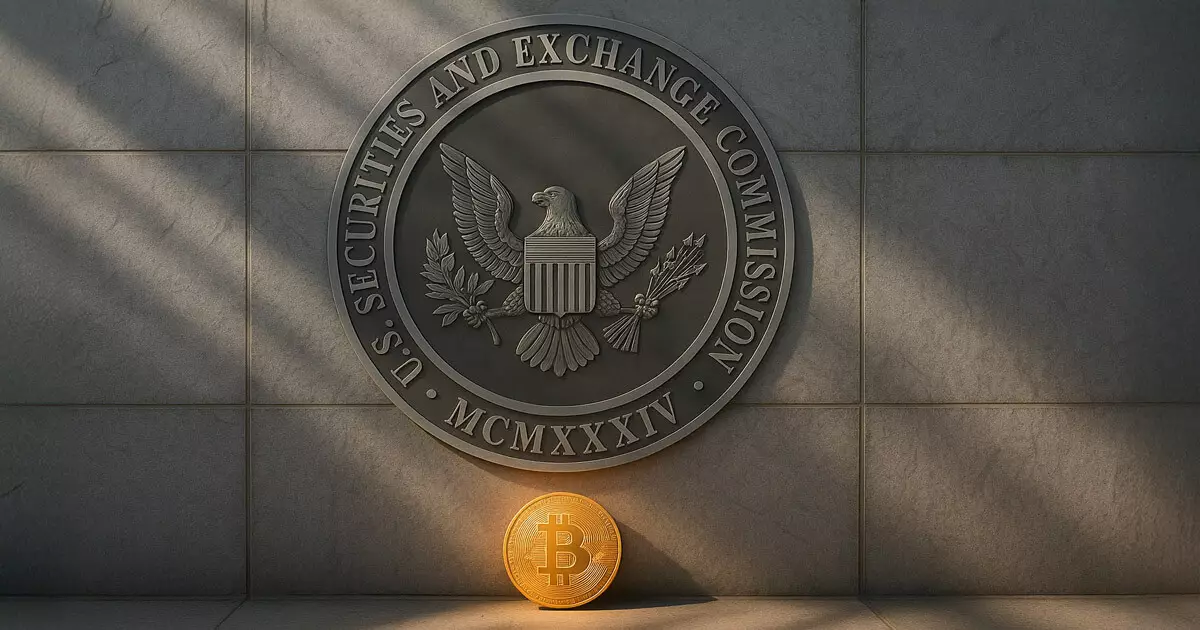The United States Securities and Exchange Commission (SEC) is entering uncharted waters with its review of 72 crypto-related exchange-traded fund (ETF) filings. This significant move, as reported by Bloomberg’s ETF analyst Eric Balchunas, underscores a crucial juncture for both the cryptocurrency industry and traditional finance. By introducing a slew of digital asset ETFs—including those linked to established cryptocurrencies such as Bitcoin (BTC) and Ethereum (ETH), alongside newcomers like Dogecoin (DOGE)—the SEC is signaling a willingness to adapt to the rapidly changing financial landscape. However, one must question whether this evolution is genuinely progressive or merely an opportunistic capitulation to market pressures.
Redefining Access to Crypto
Bringing crypto to the ETF market could be likened to introducing a new sound to a struggling music genre. Balchunas captures this concept perfectly—having your coin ‘ETF-ized’ is akin to a band finally getting featured on major streaming platforms. Yet, while it opens the door for increased visibility, it does not inherently guarantee success. The danger lies in the potential for fleeting hype—will retail investors succumb to the allure of low-market cap coins, only to face the sobering reality of volatility and instability? The SEC must tread carefully here, ensuring that the influx of altcoins and memecoins does not exploit uninformed investors.
Bitcoin’s Continued Reign
Despite the dazzling array of new proposals, the undeniable fact remains: Bitcoin continues to dominate, representing around 90% of global crypto fund assets, as noted by Balchunas. Even with an influx of diverse ETF options, projections suggest Bitcoin will maintain a staggering 80-85% share over time. This raises a critical question—why do we continue to harbor a blind spot in recognizing Bitcoin’s intrinsic qualities that give it its staying power? Its entrenched position serves not only as a reward but also as a warning to other players in the crypto sphere. The new ETF landscape is exciting, yet it serves as a reminder that even amidst change, the old guard doesn’t simply fade away; it transforms and adapts.
Chaos or Structure? The SEC’s Balancing Act
The SEC’s cautious approach must be commended, as its decisions will pave the way for how traditional finance and crypto intersect. Approvals of these ETFs—some linked to leveraged products—could push the boundaries of speculative trading. This complex interplay raises concerns that the agency might be fostering an environment reminiscent of the pre-2008 financial crisis, where risk was not adequately hedged, leading to chaos. The SEC is under immense pressure from institutional and retail investors alike. How they respond to these pressures while maintaining order in a potentially chaotic market will be pivotal in determining the health of the financial ecosystem.
The upcoming decisions surrounding these ETF proposals are not merely procedural; they represent a philosophical battle over the future of finance. Will the SEC champion innovation while exercising necessary oversight, or will they find themselves entangled in a web of rapid consumerism, ultimately failing to protect investors? Time will tell how the SEC navigates this intricate dance between regulation and innovation in the form of crypto ETFs.


Leave a Reply